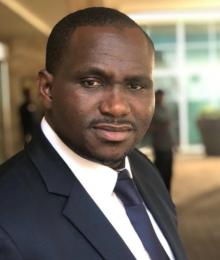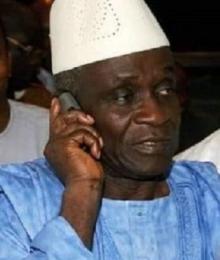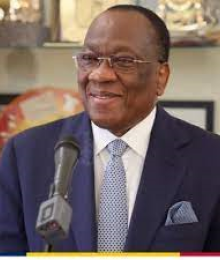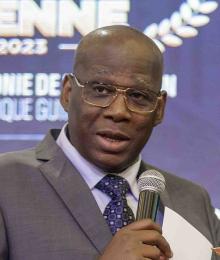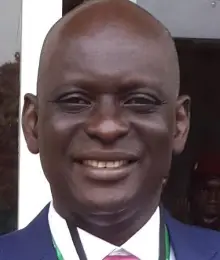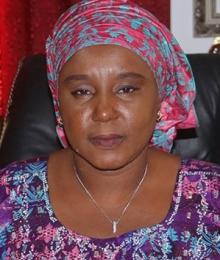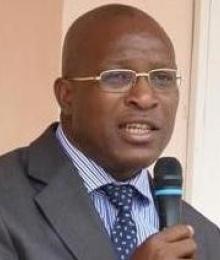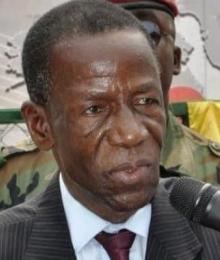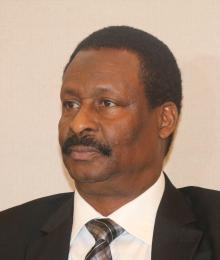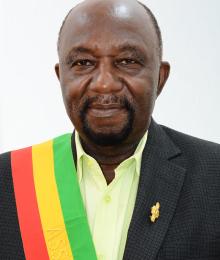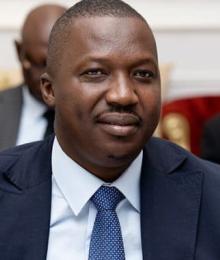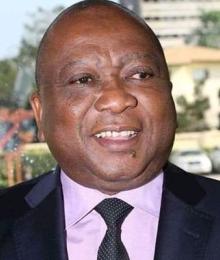
Oyé Lamah Guilavogui is a Guinean politician who distinguished himself through his exceptional longevity in government under Alpha Condé's presidency (2010-2021). A former official at the National Tax Directorate, he successively held the positions of Minister of Posts, Telecommunications and New Information Technologies, Minister of Transport, and then Minister of Environment, Water and Forests. His career is marked by several notorious controversies, particularly the failed revival of Sotelgui, accusations of nepotism, and his categorical refusal to be appointed to the Ministry of Livestock.
After the coup d'état of September 5, 2021, which overthrew Alpha Condé, Oyé Guilavogui was prosecuted by the Guinean justice system for illicit enrichment and embezzlement of public funds, with considerable amounts at stake. He was authorized to leave the country for medical treatment in Tunisia in November 2023, an evacuation that itself sparked controversy.
Introduction
Oyé Lamah Guilavogui is a Guinean political figure whose career has been marked by remarkable longevity in government, but also by controversies and legal proceedings. His story illustrates the complexities of political life in Guinea during the 2010-2020 period.
Origins and Early Career
Originally from Macenta in Guinea's forest region, Oyé Guilavogui began his professional career at the National Tax Directorate. His political journey took a decisive turn when he met Alpha Condé in prison. According to some sources, Oyé Guilavogui had been sentenced to three years' imprisonment for embezzlement of public funds when Ibrahima Kassory Fofana was Minister of Finance. It was during this period of incarceration that he met Alpha Condé, then a political prisoner, with whom he developed a friendship, providing him with regular financial support.
Political Rise
After Alpha Condé came to power in 2010, Oyé Guilavogui was appointed to important ministerial positions:
- Minister of Posts, Telecommunications, and New Information Technologies in the Mohamed Saïd Fofana I and II governments (2010-2015)
- Minister of Transport in the Youla government (2015-2018)
- Minister of Environment, Water, and Forests in the Kassory government (June 2020 - September 2021)
This exceptional longevity across different governments, which he himself attributes to "the confidence of the head of state," made him one of the most enduring ministers under Alpha Condé's presidency.
The Sotelgui Affair and Unfulfilled Promises
One of the most notable issues during his time at the Ministry of Telecommunications concerns the Guinean Telecommunications Company (Sotelgui). In January 2014, Oyé Guilavogui announced the imminent revival of this struggling public company, promising that it would "regain its position as a mobile telephony leader before the end of 2014."
For this revival, the minister mentioned a $50 million loan from China's Eximbank at a concessional rate of 2% over 17 years, with equipment manufacturer Huawei as a partner. He even claimed that "the first containers of equipment for the revival and modernization have already arrived at the Autonomous Port of Conakry."
However, these promises did not materialize. In July 2014, Sotelgui's 1,608 workers expressed their anger against the minister, denouncing the non-compliance with the agreement signed to regularize their situation. This social conflict illustrates the failure in managing this sensitive issue by Oyé Guilavogui, as Sotelgui never regained its dominant position in the Guinean market.
Controversies at the Ministry of Transport
His tenure at the Ministry of Transport (2015-2018) was also marked by controversies. In August 2016, his decision to ban motorcycle taxis in the capital Conakry provoked strong mobilization from drivers. Faced with this protest, the minister had to revise his position, moving from an outright ban to a promise to regulate the sector.
In January 2018, he was accused of nepotism for awarding a renovation contract for SOTRAGUI (Guinean Transport Company) facilities to his own son. According to media allegations, the funds came from the sale of old buses from the former SOGUITRANS that were turned into scrap metal.
Refusal of the Ministry of Livestock
A particular episode illustrates Oyé Guilavogui's influence with President Alpha Condé. In 2018, during a cabinet reshuffle, he categorically refused to be appointed Minister of Livestock, declaring: "I am a forester, I am very far from cattle."
This unusual stance for a minister sparked comments about his privileged relationship with the government. In an interview with the press, he explained: "Where Aboubacar Sylla refuses, they ask me to go there, I said no." This ability to refuse a ministerial position testifies to his special position within Alpha Condé's regime.
Minister of Environment
Appointed Minister of Environment, Water, and Forests in June 2020, Oyé Guilavogui engaged in several environmental initiatives, including reforestation campaigns to combat deforestation in Guinea.
In July 2018, he launched a national reforestation campaign and emphasized the need to preserve the Demoudoula forest, which had lost almost all of its 147 water sources due to unplanned construction. In May 2019, he announced an ambitious reforestation program covering 1,693 hectares, amounting to more than 16 billion Guinean francs.
During a press conference in June 2021, he expressed particular concern about the environmental consequences of mining operations in Guinea, specifically denouncing the destruction of rivers in Pita, Siguiri, and Boké: "In Boké, for example, there is nothing left there! What I saw with my own eyes is unacceptable. In Siguiri as well, there is practically no more drinking water."
Intervention During Community Tensions in Macenta
In December 2020, Oyé Guilavogui was sent by President Alpha Condé to Macenta to ease intercommunity tensions between the Tomas and Tomamanias that had resulted in 11 deaths and about thirty injuries. On this occasion, he made a controversial statement: "Macenta should not become like Bambéto," referring to a district in Conakry known for its support of the opposition.
Downfall and Legal Proceedings
Oyé Guilavogui's ministerial career ended with the coup d'état of September 5, 2021, which overthrew President Alpha Condé. On April 6, 2022, he was placed under detention at the Conakry Central Prison after three days of questioning by the Court for the Repression of Economic and Financial Offenses (CRIEF). He was prosecuted for illicit enrichment and embezzlement of public funds.
On May 19, 2022, he was released upon payment of a fine of twenty billion Guinean francs and placed under judicial supervision. However, his legal troubles did not end there.
In November 2023, suffering from health problems (abdominal pain and urinary infections), he was hospitalized at CHU Ignace Deen and then authorized to be evacuated to Tunisia for medical care. This medical evacuation caused controversy, with the State Judicial Agent claiming in March 2024 that Oyé Guilavogui had actually "joined his mentor Alpha Condé in Turkey," which his lawyers firmly denied.
In February 2025, while requisitions and pleadings were scheduled, the CRIEF ordered the reopening of debates in this complex case. The amounts involved are considerable: $50 million for the revival of Sotelgui, $300 million for the national backbone, 94 billion Guinean francs for the 2020 fiscal year of the Ministry of Transport, 17 billion for the Ministry of Environment in 2021, and 10 billion for a reforestation project.
Political Legacy
Oyé Guilavogui's career illustrates the complexities and contradictions of Guinean political life. On one hand, his ministerial longevity demonstrates certain political skill and a privileged relationship with President Alpha Condé. On the other hand, the numerous controversies that have marked his career and the legal proceedings against him raise questions about his management of public affairs.
His case is part of a broader context of anti-corruption efforts in Guinea, particularly after the 2021 coup d'état, which saw several former high-ranking officials of Alpha Condé's regime prosecuted by the justice system.
Today, as his trial continues, Oyé Guilavogui's story remains unfinished, but it already constitutes a significant chapter in Guinea's recent political history.











